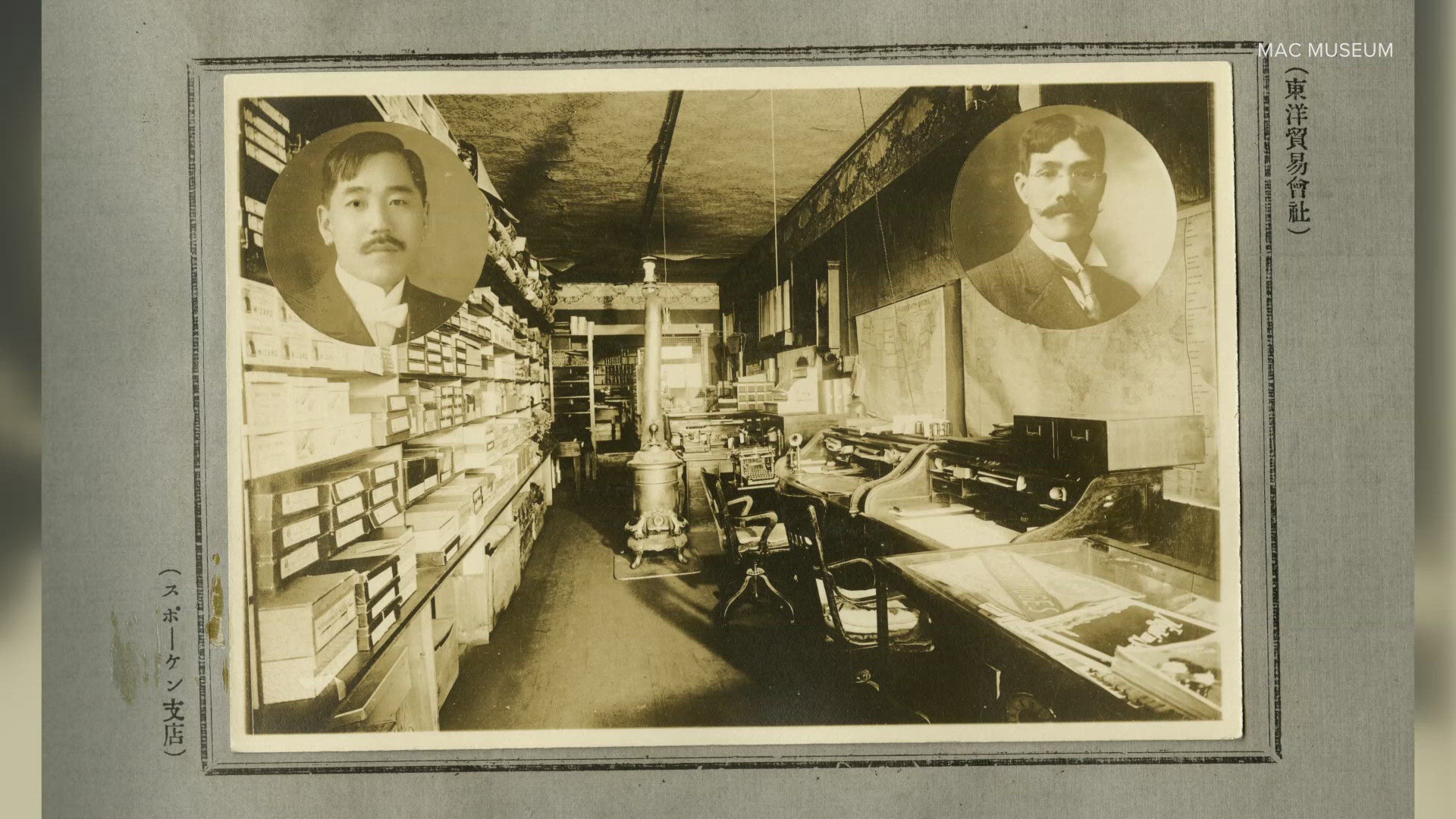SPOKANE, Wash. — For the last 50 years, a parking lot sits in the shadow of Spokane’s Parkade; the concrete lot is the same place many Asian-owned businesses once stood.
The area adjacent to Riverfront Park used to be a cultural hub known as “Trent Alley.” It stretched from Bernard and Howard Streets and was home to many Asian-run businesses such as hand-laundries, trading posts, hotels and shops.
"The area [Trent Alley] started to flourish in the 1920's with Japanese and Chinese businesses and there's no remnants of those. And they were all torn down and turned into parking lots,” Anna Harbine said.
Anna Harbine is the Johnston-Fix Curator of Archives and Special Collections for the Northwest Museum of Arts & Culture. Harbine curated the "It Happened Here: Expo '74 Fifty Years After” at the MAC.
While the World's Fair in Spokane is widely celebrated today, that wasn't the case in the early 70's.
"I always refer to Expo as one of the two big moments in Spokane's kind of landscape history. The first being the fire in 1889, which burns down the entire downtown core, and the second being the fair,” Harbine said.
Expo ’74 is not entirely to ‘blame’ for the end of Trent Alley, much of the changes happened in the years leading up to the fair. KREM 2 pulled a 1950 fire insurance map from the MAC archives, it shows dozens of Asian owned businesses in and around Trent Alley, the same insurance map from years later shows many of those businesses turned into parking lots.
"A lot of the artifacts that would help us understand or even see that there was an Asian presence downtown, those were destroyed,” said Margaret Albaugh with Asians for Collective Liberation in Spokane.
Albaugh is working to help preserve and tell the history of Asian Americans and partnered with Steven Bingo the University Archivist and Manuscripts Librarian at Eastern Washington University.
By the early 70's many businesses closed or became run down. Trent Alley became known as "Skid Row," a place with crime and homelessness was taking over.
"When you see interviews with King Cole, he'll talk about this stretch that was kind of the slums and there was not it was ‘Skid Row.’ It was not in urban developers minds, a space to preserve and protect” Harbine explained.
Expo 74 was seen as a way to reform the area, but this came at a cost.
While many Asian businesses closed prior to the 70's, for generations of Asians, seeing family businesses turned into parking lots was hard to see.
"So there was, I think, a bit of a sense of loss of kind of like, seeing your childhood community knocked down for even if it's something as beautiful as a park, you still feel that sense of loss that those buildings are no longer there,” Bingo said.
There's a sense of loss for some, and progress for others. King Cole, known as the ‘Father of the Fair’ called the now demolished Riverfront railroad tracks the ‘Chinese wall,’ he said this as a metaphorical wall to social progress.
"I think for me, understanding the presence of Asian communities specifically, and how they played a huge role in downtown Spokane, the economics of Spokane, the development of the downtown area,” Albaugh said.
While many appreciate what Expo 74 did for downtown Spokane, others want to make sure the stories of those in the footprint of the fair are not forgotten.
DOWNLOAD THE KREM SMARTPHONE APP
DOWNLOAD FOR IPHONE HERE | DOWNLOAD FOR ANDROID HERE
HOW TO ADD THE KREM+ APP TO YOUR STREAMING DEVICE
ROKU: add the channel from the ROKU store or by searching for KREM in the Channel Store.
Fire TV: search for "KREM" to find the free app to add to your account. Another option for Fire TV is to have the app delivered directly to your Fire TV through Amazon.
To report a typo or grammatical error, please email webspokane@krem.com.

